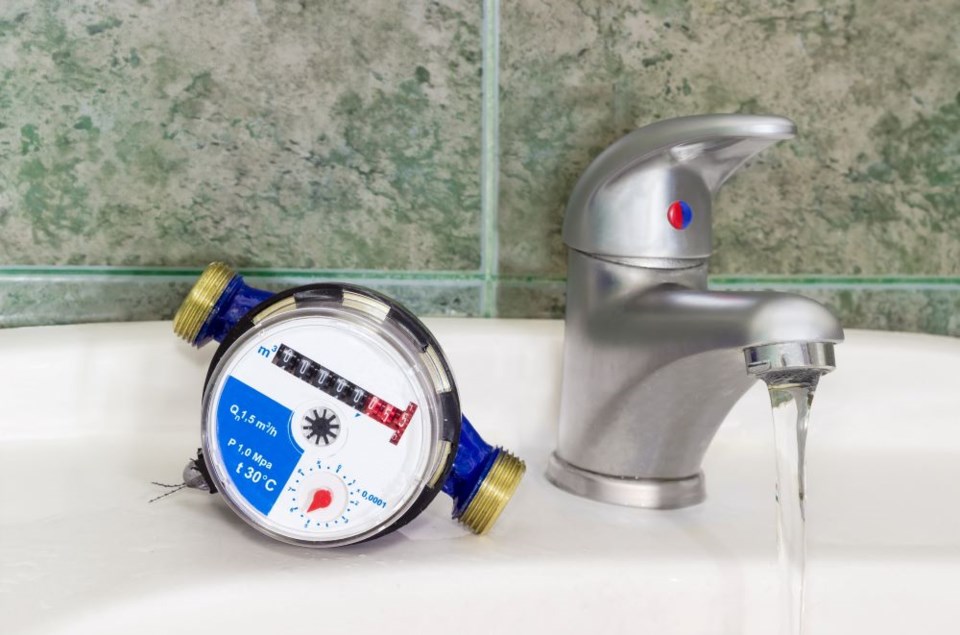Burnaby residents in single- and two-family homes will soon be getting water meters to track their water consumption – eventually leading to a pay-for-use water billing model in 2027.
On Monday, Burnaby city council approved a plan to introduce water metering throughout the city.
Staff said universal water metering helps manage water more sustainably and more equitably “in that residents and businesses pay for what they use,” according to a staff report.
Water metering encourages conservation by giving residents direct feedback on their consumption, which leads to a “significant reduction in overall water demand,” according to the report.
Staff said the real-time consumption data will allow for better demand forecasting, leak detection and, by reducing overall water demand, postpone the need for costly upgrades to regional water and wastewater facilities.
The city said the current flat-rate billing system does not encourage conservation, and instead “effectively subsidizes high consumption.”
“By shifting to a user-pay model, residents will pay for the water they use, fostering a sense of ownership and responsibility towards water conservation.”
The city won’t change the existing flat-rate system until 2027. More information on the new billing structure will come in late 2026.
“As meters are deployed, staff will leverage the data to design a revenue-neutral metered water rate structure,” said the report.
It costs Burnaby more than $30 million annually to purchase bulk water from Metro Vancouver.
Before the new billing system is introduced, the city will use existing technology such as My Property Portal to give customers access to their consumption data.
The city will pay about $24 million between 2025 and 2027 to install the water meters.
Cost breakdown for meters and installation:
- $1,000 per single- and two-family home with “meter-ready” water service connection (5,500 homes in this category)
- $2,500 per home with secondary suites (7,400 homes in this category)
The next phase from 2028 to 2037 will include about 20,000 remaining single- and two-family properties.
The city has required all new commercial, apartment and single-family homes to install a water meter before move-in since July.
The city won’t add water meters to existing mixed-use strata and commercial buildings until 2028, according to engineering general manager May Phang, who said that will be a “much more complex phase.”
Council response
The proposal was approved by council over the opposition of councillors Pietro Calendino and Sav Dhaliwal.
Calendino called the project a “very expensive data collection system.”
“We are not in a water crisis,” he said, adding the region has already reduced consumption through education over the last decade.
Dhaliwal said the investment should go instead into programs for harvesting rainwater for flushing and gardening and suggested the cost of the meters would be too high in the long run.
But Coun. Alison Gu noted Metro Vancouver is upgrading the Coquitlam reservoir because it can’t access enough water in the summer.
“The experts who study this would say we are in a water crisis and it’s only going to get worse from here,” she said.
“We are a bit spoiled here in Metro Vancouver because we have access to the world’s highest quality, cheapest drinking water and then we go and squander it,” Gu added. “We need to be planning for the future.”





